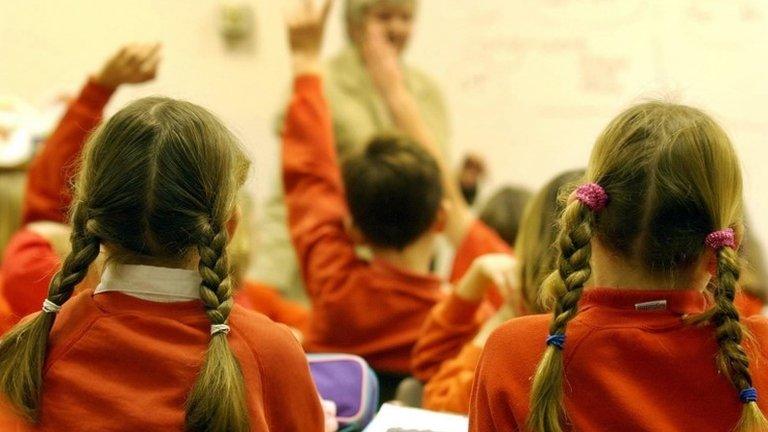NASUWT teachers to stage series of one-day strikes in Northern Ireland
- Published
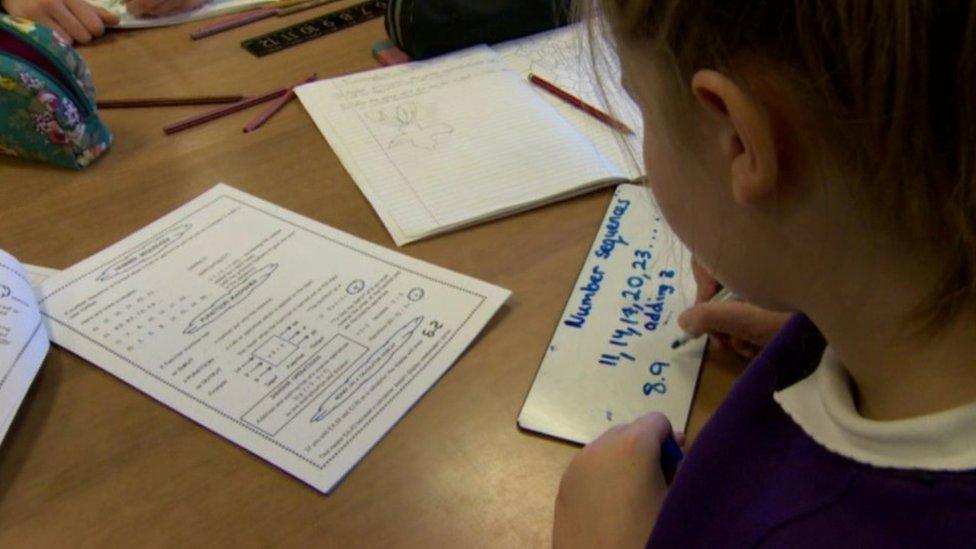
The NASUWT is one of the largest teaching unions in NI and is striking for the first time since 2011 over pay, workload and job insecurity
Teachers belonging to the National Association of Schoolmasters and Women Teachers (NASUWT) are to stage a series of rolling one-day strikes in schools.
The NASUWT is one of the largest teaching unions in Northern Ireland.
It is striking for the first time since 2011 over pay, workload and job insecurity.
NASUWT members in about 130 schools in Belfast and Newtownabbey will stage a one-day strike later this month.
The exact date of the stoppage will be announced later this week.
The union said that its members in other areas will then take similar action in January and February 2017.
Northern Ireland's Education Minister Peter Weir said he was "very disappointed that the NASUWT has chosen to take industrial action which will impact on pupils who go to school to learn and achieve".
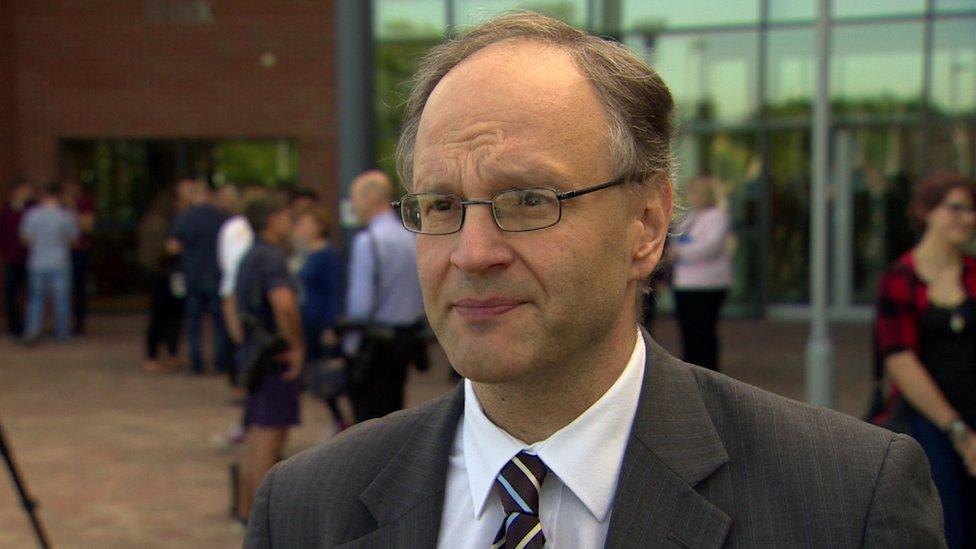
Education Minister Peter Weir said teachers had been awarded a pay rise this year in a challenging financial climate
Last month, all teaching unions in Northern Ireland rejected an offer which would have seen their pay frozen last year and a rise of 1% for 2016-17.
The department subsequently wrote to schools last week to say that the pay settlement meant that an additional £7m could go to schools.
However, the NASUWT claimed that the education minister was "funding schools on the basis of cutting teachers' pay".
In a statement to the BBC announcing the rolling strike action, NASUWT general secretary, Chris Keates, said that teachers were being treated with "contempt".
"Teachers do not take strike action lightly," she said.
"No one wants to disrupt the children and young people they teach or their parents, but teachers' pay and conditions are inextricably linked to the provision of high quality education.
"The responsibility for the strike action rests with the minister and employers."
However, the education minister said teachers' pay "has not been cut" and that they "have received what they are contractually entitled to".
"In addition teachers' salaries and allowances will be uplifted by 1% from September 2016, therefore teachers have also received a pay increase" Mr Weir added.
"In this challenging financial climate it is important to find the right balance between protecting school budgets and protecting teachers' jobs and delivering a fair increase to teachers' salaries, within the parameters of Northern Ireland Executive pay policy.
"That is why I recently announced some £14m additional spending power for schools which will benefit teachers and pupils," the minister said.
Northern Ireland NASUWT official Justin McCamphill added that the union regretted the disruption but said that teachers had been left with no choice.
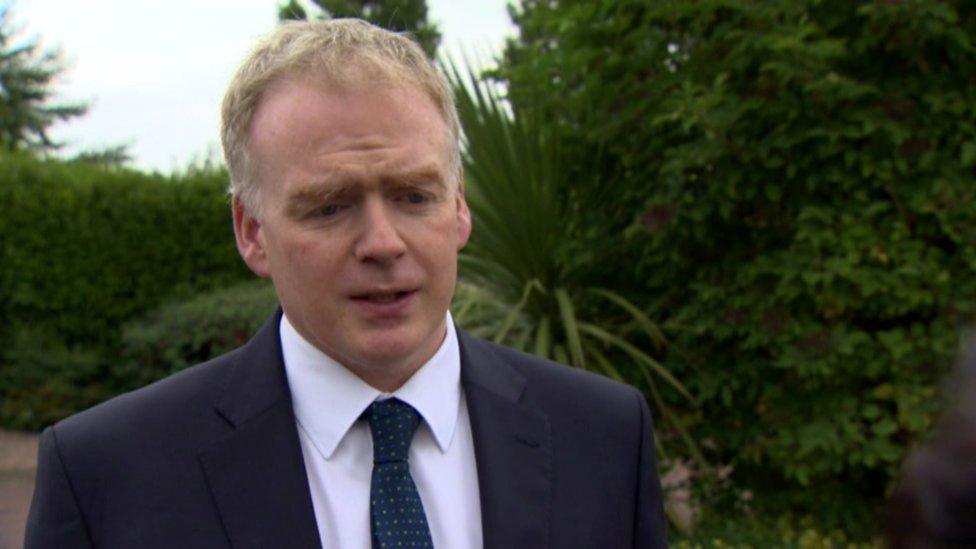
Justin McCamphill from the NASUWT said the decision on teachers' pay was "scandelous"
"Ministers and employers have been given the money to pay teachers the minimum of 1% for 2015-16," he said.
"It is nothing short of scandalous that they clearly do not think that paying teachers is important."
None of the other teaching unions have yet joined the NASUWT in announcing strike action following the breakdown of talks over pay.
However, the Ulster Teachers' Union (UTU) and Irish National Teachers' Organisation are due to hold a series of 'school gate pickets' on Tuesday.
- Published12 October 2016
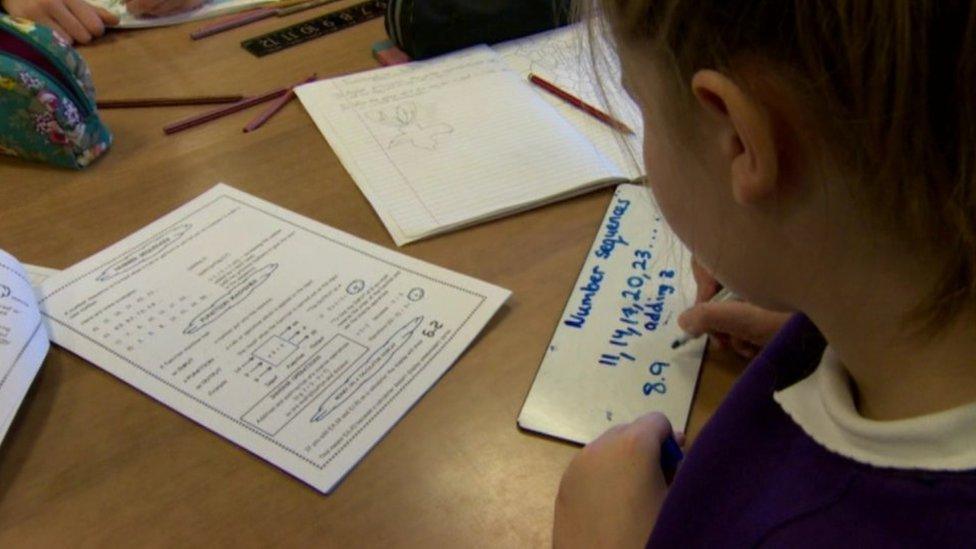
- Published2 February 2016
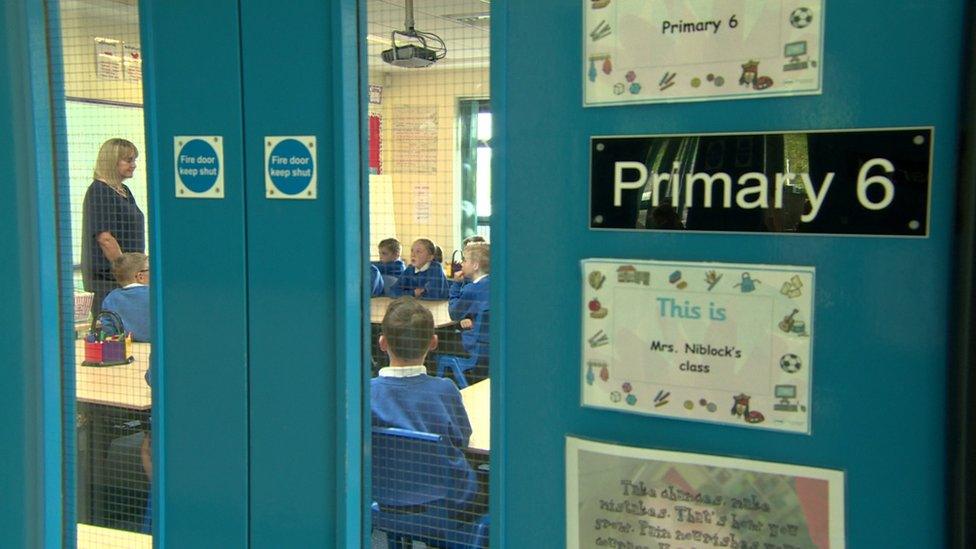
- Published26 February 2016
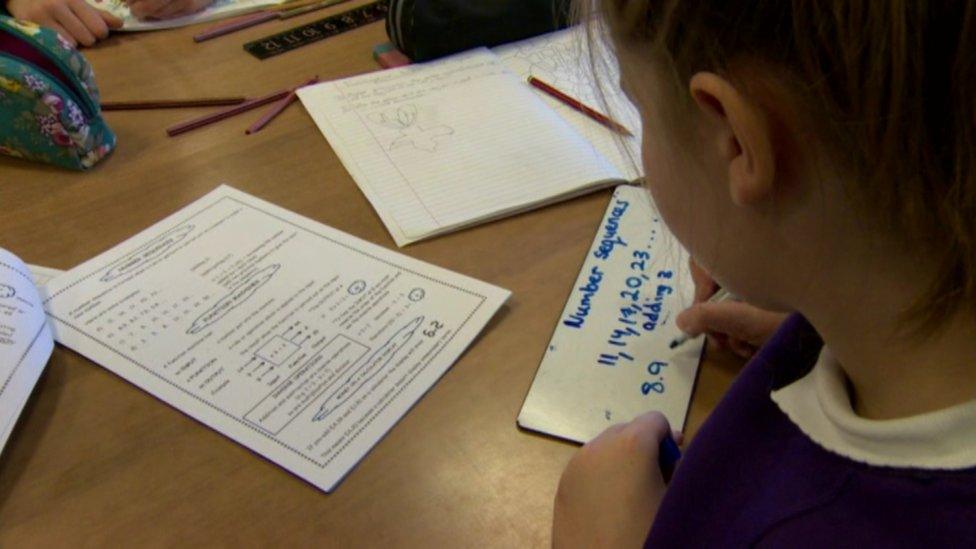
- Published23 June 2016
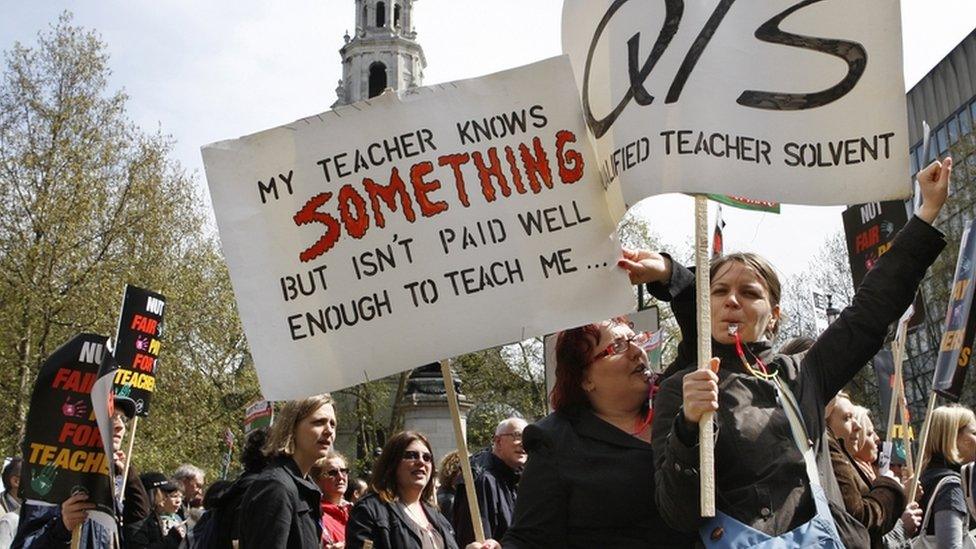
- Published5 March 2015
